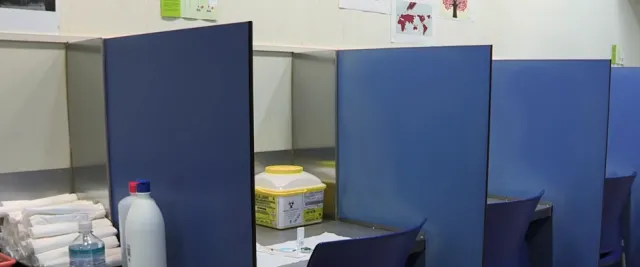Community agencies: partners in accession
After the successive enlargements of the European Union in 2004 and 2007, the next challenge for European agencies is the preparation of Candidate and Potential Candidate countries for future participation in the work and activities of the agencies. As the Instrument for Pre-Accession Assistance (IPA) framework incorporates the previous pre-accession and stabilisation and association assistance that covered two different groups of countries (Candidates and Potential Candidates), the nature of the technical cooperation, its objectives and its modalities are becoming more complex, and require a different approach.
This is why the EMCDDA is organising at the request of the European Commission an EU high-level conference called: ‘Community agencies: partners in accession’, from 25 to 27 November 2009 in Lisbon, Portugal.
This by-invitation conference will bring together over 100 top policymakers from IPA beneficiaries, including representatives from Albania, Bosnia and Herzegovina, Croatia, the former Yugoslav Republic of Macedonia, Kosovo (under UN Security Council Resolution 1244/99), Montenegro, Serbia and Turkey, as well as representatives from EU Member States, the European Commission and EU agencies. Interpretation will be provided from and into English from Croatian, Turkish and Macedonian.
The conference will start at 4.00 pm on Wednesday 25 November and will run until lunchtime on Friday 27 November. An exhibition will be organised throughout the whole duration of the conference, where EU agencies will have the opportunity to demonstrate their achievements and best practices in developing technical assistance with Candidate and Potential Candidate countries.
Workshops will focus on sharing experiences and best practices from technical cooperation between IPA beneficiaries and EU agencies. The objective is to produce at the end of the conference recommendations to the EU agencies, to the IPA beneficiaries and to the European Commission, that may help to improve the design, implementation, and/or the added value of such technical cooperation projects for all partners involved.
Conference conclusions
Community agencies should
- strengthen the management, design and implementation of projects via more realistic needs’ assessment and the planning of activities with the countries;
- ensure that projects are more flexible in adapting to the changing reality of countries;
- ensure that cooperation with the countries is more visible and that information is disseminated at national level on the EU agenda and activities;
- continue to integrate and associate national experts in relevant working groups and technical meetings so as to facilitate the ‘learning by doing’ process.
Candidate and potential candidate countries should
- have one national policy, strategy and structure at sectorial level to support and monitor cooperation with the Community agencies;
- strengthen the coordination of stakeholders at national level and further support the role of the IPA national coordinating body, so as to guarantee the political responsibility for cooperation.
- establish consolidated management structures, at least at Ministerial level, so that they can fully benefit from technical assistance and ensure that the national counterparts have the required mandate and level of competence.
European Commission should
- strengthen the coordination mechanisms and the communication flow between the different EU services and institutions, in order to ensure that activities complement each other and are supported by all EU bodies;
- integrate in its medium- and long-term perspectives the need for the countries to have more time and resources to fully benefit from their participation in Community agencies;
- maintain a realistic approach in its contracting procedures and its expectations towards the Community agencies so as to ensure that the technical assistance projects can really meet the needs of the partner countries.








